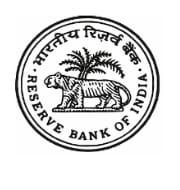RBI allows startups to raise $3 million via ECBs annually
The Reserve Bank of India (RBI) has permitted startups to raise external commercial borrowings (ECBs) of up to $3 million in a financial year for three year tenure
The new rules issued by RBI aims at boosting innovation and promoting job creation in the country. It will apply to startups looking to raise foreign borrowings and restrictions on such funds will be kept minimum.
Key Facts
- Under the ECB route, borrowing of startups should be denominated in any freely convertible currency or in Indian Rupees (INR) or a combination thereof.
- In case of borrowing in INR, the non-resident lender, should mobilise INR through swaps/outright sale undertaken through bank in India.
- Under this, Funds can be raised with a minimum maturity of 3 years. There will no cost-ceiling or restriction on the end use of the funds raised.
- The borrowing can be in form of loans or non-convertible, optionally convertible or partially convertible preference shares and minimum average maturity period will be 3 years.
- The ECBs can be raised from a country which is either a member of Financial Action Task Force (FATF) or either through FATF-Style Regional Bodies.
- Overseas branches and subsidiaries of Indian banks and overseas wholly-owned subsidiary or joint venture of an Indian company will not be considered as recognised lender.
What is External Commercial Borrowings (ECBs)?
- Any money borrowed from foreign sources for financing the commercial activities in India are called ECBs. The Central Government permits ECBs as a source of finance for Indian Corporates for expansion of existing capacity as well as for fresh investment.
- Thus, ECBs are defined as money borrowed from foreign resources including the following: (i) Commercial bank loans (ii) Buyers’ credit and suppliers’ credit (iii) Securitised instruments such as Floating Rate Notes and Fixed Rate Bonds etc. (iv) Credit from official export credit agencies and commercial borrowings from the private sector window of Multilateral Financial Institutions such as World Bank, ADB, AFIC, CDC, etc.
How ECB is different from FDI?
In case of Foreign Direct Investment, the foreign money is used to finance the Equity Capital. But in case ECBs, foreign money is used to finance any kind of funding other than Equity.
Month: Current Affairs - October, 2016


